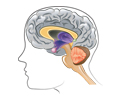Research shows gender-specific impacts of elevated cortisol levels in the third trimester of pregnancy on fetal development.

26th European Congress of Endocrinology 2024
Go to source). Prenatal exposure to cortisol — a steroid hormone that helps the body respond to stress — is needed for fetal development and is thought to affect cognitive function in children later in life.
‘Did You Know?
Stress doesn't just affect adults. Studies have shown that stress levels among children and teenagers are on the rise, leading to concerns about long-term health effects. #stress #cortisol #pregnancy #intelligence’





During pregnancy, the levels of cortisol increase, and pregnant women carrying girls generally secrete more cortisol than those with boys. Stress doesn't just affect adults. Studies have shown that stress levels among children and teenagers are on the rise, leading to concerns about long-term health effects. #stress #cortisol #pregnancy #intelligence’
However, in the placenta, the enzyme 11β-hydroxysteroid-dehydrogenase type 2 (11β-HSD2) regulates the amount of cortisol that reaches the fetus by converting cortisol to its inactive form known as cortisone.
Role of Cortisol in Fetal Growth
Researchers from the Odense University Hospital in Denmark have previously shown that children between the ages of one and three have more advanced speech and language skills when their mothers have high levels of cortisol during their third trimester.Now, in this study, the researchers analyzed data on the cortisol and cortisone levels of 943 pregnant women during the third trimester and on the IQ tests of their 943 children aged 7 years old, from the Odense Child Cohort.
They found that pregnant women carrying a boy had lower cortisol levels circulating in their blood than those women carrying a girl.
Advertisement
“To our knowledge, this is the first study investigating the association between urine cortisone levels during pregnancy and IQ scores in children,” said lead author, Dr Anja Fenger Dreyer.
Advertisement
Dr Fenger Dreyer added: “Our results show that girls may be more protected by the activity of placental 11β-HSD2, whereas boys may be more vulnerable to prenatal exposure of maternal physiological cortisol.”
“Although our previous study showed prenatal cortisol exposure was positively associated with language development, in this study prenatal cortisol exposure — ‘directly’ by serum cortisol and ‘indirectly’ by urine cortisone — is negatively associated with IQ scores,” continued Dr Fenger Dreyer.
“This may mean that the high levels of prenatal cortisol exposure might have a temporary effect on a child’s cognitive development. It should also be noted that the vocabulary in toddlers was reported by parents in our previous study, while child IQ in this study was assessed by trained psychologists.”
Reference:
- 26th European Congress of Endocrinology - (https://www.medizin.uni-muenster.de/en/male-germ-cells/termindetails/26th-european-congress-of-endocrinology-2024.html#:~:text=We%20are%20pleased%20to%20announce,as%20virtual%20via%20ECE%40Home.)
Source-Eurekalert















